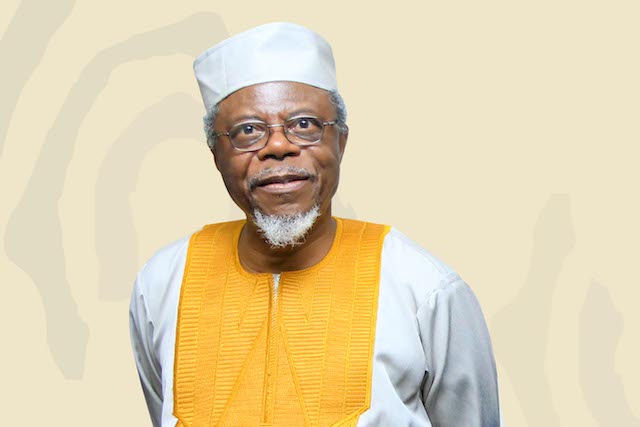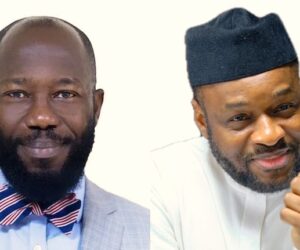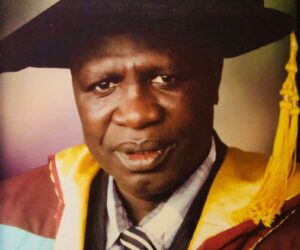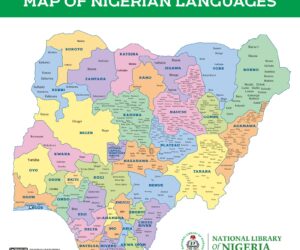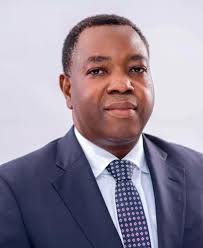
Ìbà alájá òun ògbóró
Ìbà ajọ̀gẹ̀dẹ̀ òun àgbààgbà
Ìbà alògìdìgbó tí wọn ọ́n f’ìdí k’òdí
Ìbà alukósó tí wọn ọ́n kọjú síra wọn
Ìbà alu-bẹ̀mbẹ́ a-bójú lókè lókè
At a certain point in human existence, history must stop and get some ground prepared for continuity. The pauses are timely and necessary. The call for new shoulders to bear the challenge will arrive, an exchange of batons; the moment for great men to take on some responsibilities beyond themselves. Ibadan is known and revered for its brave warriors, market women, scholars, philanthropists, and traders. The city is a very reminder of long-lived history.
Today, the city stands at the threshold of other historical events. It stands at the threshold of another cultural transition of power, influence, social status, and might. Unlike other paramount kingships in the Southwest states of Nigeria, Ibadan’s unique succession pattern, which has been in place for over a century, allows for certainty regarding who the city’s next monarch will be. That unique clarity is what now places Oba Rashidi Adewolu Ladoja, a former governor of Oyo State, a former Senator of the Federal Republic of Nigeria, a seasoned politician, and a respected elder statesman, as the undisputed successor to the crown of Olubadan of Ibadanland.
As the city concluded the final rites for the deceased Olubadan, Oba Olakunle, preparations have also been in full gear for the installation of Oba Ladoja as the successor to the throne. The path before the incoming Olubadan is not one of royalty in the regal and ornamental sense, where kings live lavishly, attend parties and ceremonies, and live away from their subjects. The reverse is the case for Oba Ladoja. His accession is but of duty, vision, and service. Gone were the days when kings lived behind high walls away from the ordinary person.
The Ibadan throne is not a birthright obtainable by the stream of blood, like we practice in other parts of the country. Ascending the throne in Ibadan with every sense of justice attached to it is a unique, rare feat achieved only by decades of patience, upward transit through the phases, and sacrifice. For Senator Ladoja, who has held sway in diverse capacities in Nigeria’s political space and is now the new Olubadan, it presents a golden opportunity to invest the already interesting life and experience he has gathered throughout for the good of the people as he moves into the cultural centre of the old city.
However, with these opportunities come daunting tasks: the tasks that are imposed on the individual on whose head sits the crown. The chance to become the Olubadan presents a formidable set of functions, especially those particular to the lives of the large population who revolve around the city. There are critical tasks from ensuring security in a city growing beyond its traditional boundaries, to safeguarding the heritage of Ibadan’s unique kingship model, and addressing pressing social challenges, amongst others.
The expectations for Oba Ladoja are high. These are no exaggerations. It is rightly said and affirmed by the old and young, and felt by many, that this transition is truly an auspicious one for the city and Oyo State at large. Talk of the connections, the influence, the friends, and experiences of a former governor and senator, all being channeled to make Ibadan better.
Unlike other Yoruba cities where succession is confined to royal families, Ibadan’s kingship system allows a democratic-like succession, although hierarchical in structure. Its leadership involves parallel lines of ascension from two lines. There is the civil line with the Otun Olubadan as its head and the military line led by the Balogun. Aspirants from both lines rise step by step through long title lines until, by seniority, the next in line ascends the throne. It is a unique merit-based arrangement that has allowed fairness and stability within the city. It single-handedly eliminates potential crises of multiple claimants, which are visible in other Yoruba cities. Kingship in Ibadan is predictable and orderly. With patience, longevity, and sacrifice, one can predict who the next Olubadan will be. Becoming the Olubadan is less about birthright and wealth.
It is against this backdrop that Oba Ladoja’s forthcoming coronation is being celebrated. The city is singing, as it waits for that auspicious day when the new Olubadan will be installed. For the average Ibadan man, Oba Ladoja’s sojourn in the spheres of politics and governance, the vicissitudes he was able to survive as occupant of that office, and the tall, iconic bridge between the contending generational gaps that he straddles are already celebratory reasons enough. Of course, these rarefied qualities come to fatten the Ibadan expectation of him. He is not only a concrete representation of continuity in the great institution of the Ibadan kingship, but he is the promise of a purposeful 21st-century reign.
Oba Ladoja is no stranger to leadership. He had earlier served as Governor of Oyo State between 2003 and 2007. His experience trying to actualize his ambition to govern the state was a real test of what it means to be embroiled in the often turbulent and unpredictable nature of Nigerian politics. His time in office was initially cut short by an impeachment and thereafter a series of political storms, power plays, and tests of will. He lived to tell the story, and he did much more; he weathered the storm. He emerged from that experience hardier and more seasoned with pragmatic leadership and an unsullied reputation. In addition to all the above, Oba Ladoja had served in the Upper Chamber of the Nigerian Legislature, thus adding to the feathers of his political influence. Today, with his personality as an elder statesman, Oba Ladoja is above the tide of partisan politics.
Significantly, in Ibadan, such long memories count and are well judged. The popular saying that “Ibadan does not forget” has played out many times in different spheres of affairs in the State. And with a profile like this, the people who have seen him at the helm of affairs, weathering storms and navigating challenges, are assured of his competency to lead.
As Oba Ladoja prepares to inherit the onerous responsibility of the Olubadan, his antecedents are at once his most cherished assets and his stiffest test yet to come. To be a politician is a numbers game where survival demands one measure at a time, making compromises and negotiating one’s way through, even more so. Kingship in Ibadan, however, is different. Kingship in Ibadan is not about that at all. If anything, it is the antithesis of all that. The expectations are high because kingship in Ibadan is not just about the pageantry of being beaded in the beaded crown and beads. It is not just about that, but the need to also reimagine and personify leadership, and to wear his political credentials on the throne like a badge of honour.
Away from the mystic aura, the rituals and pageantry associated with it, the yawning landmass and teeming population of Ibadan continue to present the city-state with its complex security conundrum. We face the security challenges from rampaging street crimes, kidnappers masquerading as Micra drivers, cultism in some of our higher institutions of learning and communities, the organized confraternity of banditry in our outskirts. Safety, therefore, remains our top priority. We don’t expect the new Olubadan to issue orders to the police, as befitting a traditional ruler of his stature. Still, we expect him to speak up as the opinion leader on an issue that bears on the survival of our people and society.
We look forward to a traditional authority that would harness his rich experience in the political and socio-cultural arenas to deepen the existing synergy between community leaders, our local vigilantes, and the regular security outfits. This, he could do by galvanising the confidence between the people on one hand and the constituted authority and security agencies on the other by being a bridge between both ends. To build a safe Ibadan is to make a solid pedestal upon which the other strides of achievements and progress would stand.
If there is one adjective that could capture the mood and character of the streets of Ibadan for the informed public, it is its hustling, bustling, and happy-go-lucky dispositions. By hustling spirit, I mean the traders who are in the habit of littering both the road and market corners in Ibadan with their merchandise for sale. Chaotic sense in this context is the reference to the hooligans that most times overrun the streets, who sometimes blend in with the teeming unemployed and jobless youths whose idle days lead to all manner of deviltry. Oba Ladoja’s role as the traditional ruler of the city will thus be to champion causes that promote humane and civil enforcement of urban renewal programmes.
Cleaning up the streets of vagabonds and idle youths must be done through reintegration. The provision of shelters, skills programs, and community engagement projects focused on empowerment. If this can be done, a cleaner, safer, and more organised Ibadan will be a pride of the city and an attractive place for investors and visitors.
No civilisation at any time in history has ever prospered with idle and restive youth. The youths of Ibadan are dynamic, creative, and industrious, but are often confronted with minimal opportunities. The throne of the Olubadan is also a platform to actualise personal development plans that can add value to this vision for the youth. Vocational training, digital skills acquisition programmes, entrepreneurship development, and even programmes that would help younger Ibadans reconnect with their rich cultural heritage can be encouraged and actualised by virtue of the power the monarch wields. Trying to focus on empowering the youths is also a practical way of making veritable efforts in the war against crime and criminality, boosting the economy, and building a good foundation for the future.
In another area of influence, Oba Ladoja can champion the cause of Ibadan cultural heritage. The traditional heritage of Ibadan, starting with his ascension to the throne, is a story of the preservation of culture. Oba Ladoja should work with relevant stakeholders to encourage documentation of its kingship system, music, literature, and its warrior history as befitting of the 21st century. As the custodian of tradition, the new Olubadan should also prioritize the staging of Ibadan’s traditional heritage through carnivals and festivals to reeducate the people about the uniqueness of the city and to further strengthen the institutions that perpetuate culture alive. Through this, Ibadan will once again proudly occupy its place not just as a modern city but also as a model for Yoruba identity.
Economically, Ibadan is a trading city. From Dugbe to Bodija, its markets are lifelines for thousands. Yet, many of these markets cannot match their contemporaries in neighboring cities and states. The market needs to be modernized. Oba Ladoja has pivotal roles to play in steering conversations on infrastructure, investment, and commerce with the government and friends of the city. Through advocacy for better roads, reliable electricity, and organised marketplaces, he can help position Ibadan as a regional hub that competes with Lagos while retaining its distinct character.
Above all is the most delicate and ultimate task yet to be performed by the incoming monarch, which is to forge unity from division in a city as vast as Ibadan. Political fault lines, religious bigotry, and social antagonism risk severing the cord that holds the city together. The Olubadan’s voice will be a unifying one.
To be an Olubadan is to have offered outstanding service. It is to eschew flamboyance and embrace the virtue of servitude. It is to become the moral beacon of Ibadanland. The throne exacts sobriety, circumspection, and the capacity to lead by example. In Oba Ladoja, this is the ultimate reward for decades of public service. But it is more than individual actualisation. It is the beckoning of history and an opportunity to pen the next chapter in the narrative of Ibadan.
As Ibadan awaits the crowning of its next monarch, the people look not merely for ceremony but for leadership. Oba Rashidi Ladoja’s name is already etched in the annals of politics and governance. Now, destiny beckons him to leave behind not just a record of service but a legacy of transformation. The task before him is immense, but so too is the opportunity. Ibadan stands expectant; to perform less is to lose thousands who stand by him.
Olubadan, allow me to summarise the task before you: securing the city, promoting urban renewal, searching for ways to empowe the youth, preserving culture, seeking the means to capitalize local informal small businesses with small repayable loans, fashioning unity from endemic divisions, encouraging many more young men and women to attend the universities in the city, and encouraging politics without bitterness. These are central to the uniqueness of Ibadan and the make-up of its future. To succeed will be to exalt the stool of Olubadan and the city that is greater than life itself.
Ọmọ Ọládọjà
Koko lara ọta rẹ ó sì máa le
Kásìkò ọmọ Ládọjà tù wá pẹ̀sẹ̀
Kó rọ tónílé-tàlejọ̀ lọ́rùn
Kéku má ṣe pahùndà fọhùn bí enìyàn
Àwọn aláṣekù a sì tì ọ́ lẹ́yìn
Ẹ ò ní tẹ́,
Ẹ ò ní kú,
Ẹ ò ní rùn.
Kokoko l’ara yín ní líle ní líle
N’torí pèrègún tẹ́ẹ rí
Wọn ò kú bọ̀rọ̀bọ̀rọ̀.
Àṣẹ!
PS: This is an excerpt from the Coronation Lecture to be delivered on 24 September.
Toyin Falola, a professor of History, University Distinguished Teaching Professor, and Jacob and Frances Sanger Mossiker Chair in the Humanities at The University of Texas at Austin, is the Bobapitan of Ibadanland.

